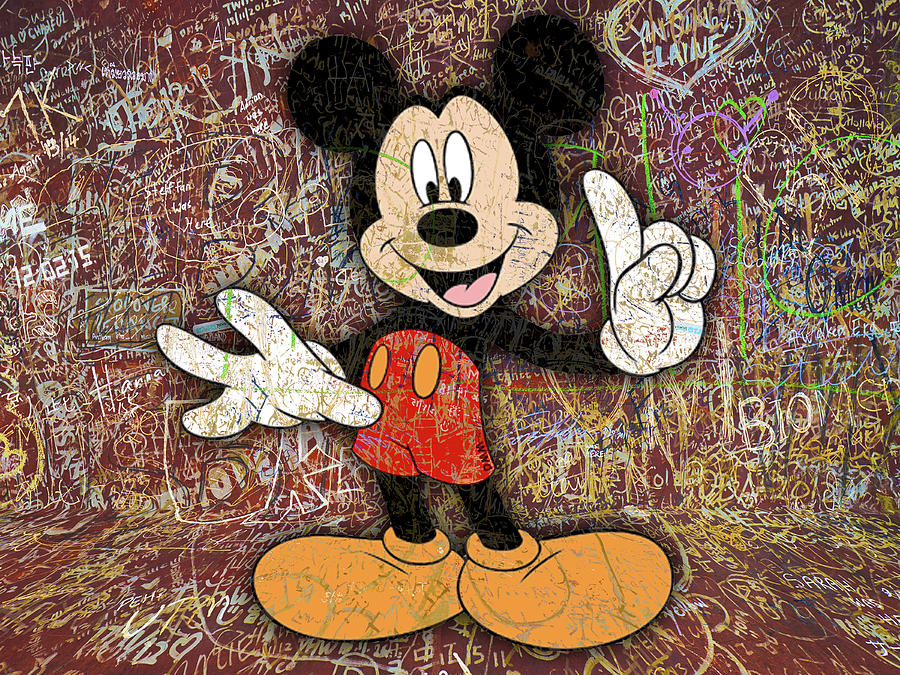When we build a wall against ‘the other’ in order to keep it separate, in order to keep it at bay, in order to totally exclude it, we bring a jinx down upon our heads. We bring into existence a glitch we cannot undo, a curse we cannot outrun, a calamity we cannot see…
We have to ‘build a wall against the other’; the condition all playing the game and playing the game is what it’s all about. Building a wall against the other isn’t ‘a mistake’ and it isn’t the Original Sin either. It isn’t an unfortunate accident that we could (or should) have avoided making – it’s the Dao, it’s ‘the way of things’.
We can self-righteously blame Pandora for opening the box, or Eve for listening to the serpent in the garden of Eden, or Persephone for eating the pomegranate seeds that she shouldn’t have eaten, but that’s just our ridiculous foolishness. The game is the game, and it always will be. The game is how things work, it’s the Cosmic Principle in action. There can’t be wisdom without ignorance or insight without illusion, just as there can’t be remembering without forgetting.
We can’t say that when Brahma exhales the universe this was the ‘wrong’ thing to do, that this is ‘an act of disobedience’, or that when he inhales that this is somehow ‘right’. That is just the delusion that comes out of polarity – which is the delusion that lies behind the whole of conditioned existence.
The building of ‘the wall against the other’ is how the self gets to come into being and without the self there is no game. Without ‘the player of the game’ there can’t be ‘the game’ and the game is the way of things, as we have just said. The self is ‘the way of things’. Saying that the game of the self is ‘the way of things’ doesn’t mean <self> is right and <the other> is wrong (which is the biased or polar view) it means that playing the game is how we learn to transcend the game, just as thinking that we are the self is how we learn to go beyond the self.
When we put the wall in place then what we’re doing is creating the (subjective) phenomenon of destructive chaos – the chaos isn’t destructive really, it’s just destructive with regard to what we’re trying to do, it’s just destructive from the point of view of the game that we’re playing. The destructive chaos as destructive chaos is a function of our creating the boundary that we are playing with. Our aim, so to speak, is to make the boundary real, and the destructive chaos is the error we can’t see ever get rid of, is what stops us doing this.
Destructive chaos is the deadly enemy that we are fighting against, therefore; this is the jinx, this is the insoluble problem that we have called down upon our heads and just as long as we are committed to making the boundary be real (making the self be real) the jinx is going to be with us. The jinx and the self can’t be separated, in other words. The Finite Game is always going to be played in contradiction to itself, as James Carse says. Self-sabotage is what it’s all about, but we mustn’t let ourselves know it because that spoils the game…
About this insoluble or irreducible error we can say two things: [1] is that we can’t ever allow ourselves to see that our enemy is undefeatable and will always win out in the end; if we saw that then that would be the end of the game. [2] is that the fact that our adversary is ultimately undefeatable is absolutely essential for the game to continue. If the enemy were to be vanquished then that would be the end of the game too, and that’s not what we want. We absolutely don’t want to bring the game to an end – we just want to believe that we do, and struggle away heroically on this false basis. The game is that we don’t know the game to be a game.
This isn’t the same as saying – as Alan Watts does – that when we’re playing ‘the Game of Black and White’ then there is a surface level opposition that hides a deeper level of agreement since, despite being nominally opposed, plus and minus are actually the very same thing, just as the crest and trough of a wave are both the wave. What we are looking at here is the ‘relationship’ (if we can call it that) between ‘that which pretends to be real’ and ‘that which actually is real’ (or between the lie and the truth, if we were to put it like that).
The relationship between a lie and the truth is of course that the lie pretends to be the truth, which necessary involves ignoring the truth in a very thorough-going fashion. My relationship with ‘what is true’ is the relationship of ignoring, therefore. This is an asymmetrical situation since, from the other side of things, the truth doesn’t ignore or deny the illusion, or have any sort of negative reaction to it. Reality doesn’t need to ignore or deny the illusion because the illusion isn’t actually there…
The way this works with respect to the relationship between ‘the self’ and ‘the other’ is that the self takes it for granted that the other can be totally managed, and totally defined and thus can be totally kept in its place. This attitude isn’t just important to us, it is essential. Our belief is that ‘the other’ only has any value as our plaything or resource, so to speak; we believe that it only has any worth when its relationship to us is quintessentially subordinate to us. This is the attitude of the slave-owner to the slave. As we’ve said, the self’s continued existence as the self depends upon it having this attitude towards ‘the other’, upon it having this utterly demeaning and arrogant belief about it.
This is how we ignore the truth – we ignore the truth by pretending that is simply an extension of us, and then ignoring the fact that we are pretending any such thing, which is – when we reflect on it – a very clever ruse! We could also put this another way and say that we ignore or deny reality by pretending that it is what we already think it is, by pretending that it is no more than an extension of our ideas and thus only taking it seriously when it matches what we want it to be. This means that we can go around paying lip service to reality, or lip-service to the truth, and feeling good about ourselves on this account even though we’re only acknowledging reality when it matches what our ideas for it. This is the ‘self-centric’ view of truth – that the truth is an extension of the self.
Our fundamental assumption as <the self> is that <the other> is completely subordinate to us (or subordinate to thought, as we could also say). In other words, our fundamental assumption – which <the self> can never ever see through, since not seeing through it is the essential precondition for its existence – is that <the other> can be wholly defined, and therefore totally managed. In our everyday life we are constantly busy managing (or trying to manage) all sorts of projects, and generally this works out for us. When things stubbornly refuse to work out for us, and it seems to us that the universe is actually working against us in some kind of profoundly malign way, we call this chaos and we see it as being 100% destructive.
There is no such thing as ‘destructive chaos’ really however, that’s just our way of relating to the truth by ‘turning it on its head’ – if it doesn’t do what we want it to then we say that it is ‘destructive’! We claim that we are relating to the truth and that we deserve respect on this basis but we’re being tricky here because we’re only relating to what we say is true, which isn’t the same thing at all. When we are able to make ‘the other’ – which is reality – be what we want it to be then it immediately becomes invisible to us as ‘the other’ and so we can happily ignore it, and when we can’t make it be what we want it to be then we see this as destructive chaos, as the malign adversary or enemy, which is the only way we (as <the self>)have of relating to reality.
Chaos simply means reality (or ‘what is’) and ‘what is’ is not destructive! How could it be? What would it be destructive of, since there is nothing outside of it, nothing apart from it? We see chaos as being destructive but the truth of the matter – which we are ignoring because that’s how we play the game – is that it is the self which is destructive. We ignore this confounding awareness by ‘inverting the perception’ and projecting the destructiveness on the world around us, rather than seeing it as a function of what we are doing…
Art: alphacoders.com






